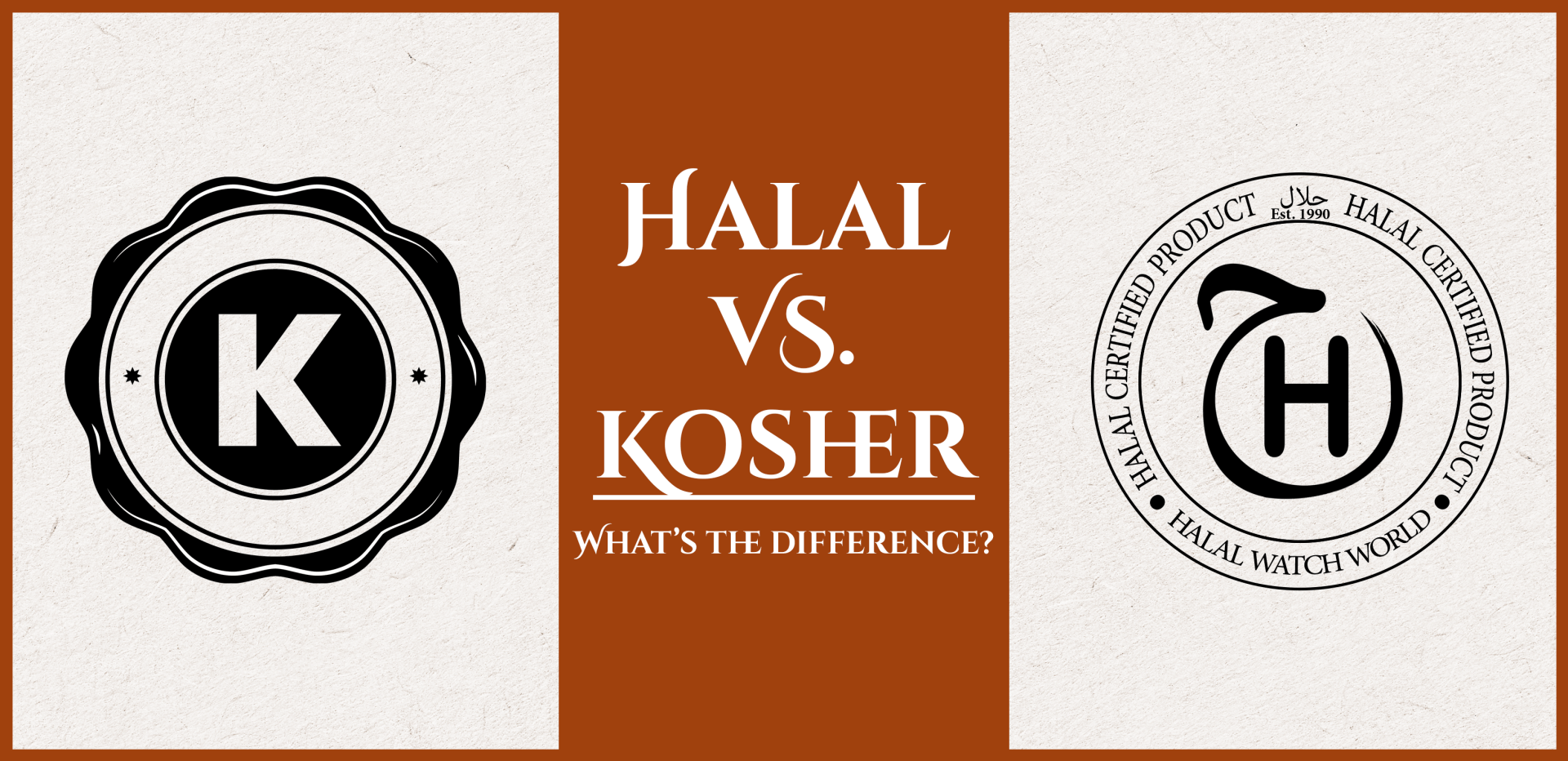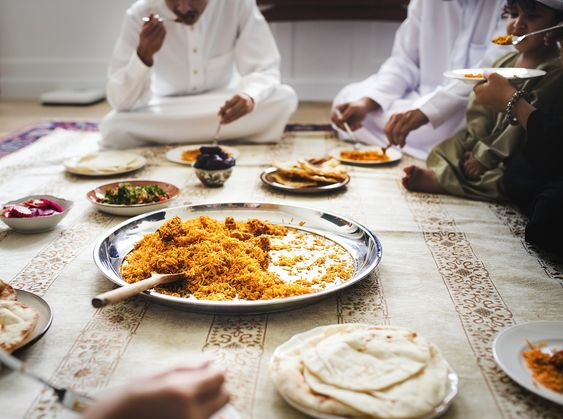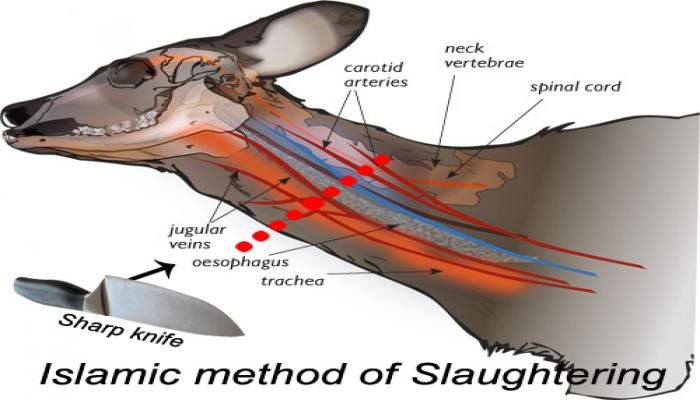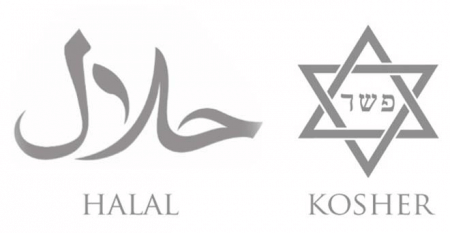Can Muslims & Jews Eat From The Same Plate?
When talking about the permissibility of a thing, the terms ‘halal’ and ‘kosher’ are well-known terms that are commonly used to discern between two different dietary laws. We are sometimes guilty of labeling it as ‘Muslim food’ or ‘Jewish food’ or using kosher interchangeably with what is considered to be culturally ‘proper’ in the moment, but at the heart of the matter, there are finer details that we aren’t fully attuned to, especially those within the food industry.
Halal and Kosher may be similar, but how do we distinguish between the two?
Let’s start off with the basics.
Each term is firmly rooted in its respective monotheistic faith tradition.
‘Halal’
is used by the Muslim community and is an Arabic word that denotes that which is ‘lawful’ or ‘permissible’ whereas ‘Kosher’ is used by Jews, and is derived from the Hebrew word ‘Kasher’ which means ‘fit’ or ‘proper.’
In both faith traditions, animals are ritually prepared and slaughtered in a specific manner in order for it to be considered permissible to consume. In Islam, animals are slaughtered in accordance with Islamic Law, and in Judaism, animals are slaughtered in accordance with Jewish regulations.
The faith traditions differ on various matters. For example, Muslims are allowed to consume aquatic animals but in order for this to be considered ‘kosher’, aquatic animals need to have fins and scales. Moreover, Jewish regulations allow for the consumption of alcohol on the premise that the grape wine is prepared according to Kashrut Law whilst Islamic Laws prohibit alcoholic consumption. Furthermore, dairy and meat are both halal and kosher if fulfilling dietary laws but combining them together is not allowed in kosher laws. Lastly, according to Islamic laws, kitchen utensils that come into contact with the aforementioned products (dairy and meat) can be reused after complete sanitization whereas, in the laws of kashrut, the reusing of kitchen utensils is not observed.
Are Muslims allowed to eat Kosher certified foods?
Jews are considered ‘people of the Book’ and the Orthodox Jewish method of slaughter is very similar to that of the Islamic way, with slight variances in methodology. However, if Kosher certifying bodies strictly adhere to Orthodox Jewish standards, the meat is deemed halal and fit to consume.
Allah says in the Quran: “This day [all] good foods have been made lawful, and the food of those who were given the Scripture is lawful for you and your food is lawful for them” Surah Ma’idah [S:5/V:22].
The Muslim exegesis, Ibn Kathir writes that “When the Most High mentioned And the foods of those who have taken the book are permissible for you all,” Allah is explicitly referring to their slaughtered animals.
So, what are the methods of slaughter?
The Islamic method of slaughter is as follows:
1. The slaughterer must be a Muslim, Jew or Christian
2. The intention must be present for the specific slaughtering tool
3. The animal must be alive
4. The tasmiyyah (Slaughtering in the name of Allah) must be mentioned
5. Severing at least 3 of the 4 ventricles (Trachea, Oesophagus, and 1 of the two Jugular Veins) to allow blood to flow
6. If the slaughterer is a Jew or a Christian, all conditions including mentioning the tasmiyyah apply
The Jewish method of slaughter is as follows:
1. There should be no interruption of the incision (Shehiya)
2. There should be no pressing of the chalaf against the neck (Derasa), this would exclude the use of an ax, hatchet or guillotine
3. The chalaf should not be covered by the hide of cattle, wool of sheep or feathers of birds (Chalada), and therefore the chalaf has to be of adequate length
4. The blessing in God’s name (b’rachah) must be pronounced
5. The incision must be at the appropriate site to sever the major structures and
vessels at the neck (Hagrama)
6. There must be no tearing of the vessels before or during the shechita process (Ikkur)
From this, we’re able to see that the Jewish method of slaughter bears a striking resemblance to the Islamic slaughtering method. Hence, the slaughtering methods of both faith traditions are compatible.
Jews and Muslims are the main religious groups who have a third-party certifying body. Seeing that Jews are people of the Book, are Jewish bodies of certification allowed to certify Halal meat?
It is worth noting that there is nothing within the Jewish method of slaughter that contradicts the Islamic slaughter method. However, there are some other methods of kosher slaughter that do not abide by these rules, which the shari’a necessarily rejects as not authentic Jewish law.
If this is the case, and any Jewish organization does not practice upon their laws, or, abide by laws contradictory to Islamic law, then we reject their process and product outright. So long as Jewish law is adhered to and abided by, by either the Jew or the Christian, then the meat will be considered Halal.
It must be noted, however, that over time, Orthodox Jewish law has been watered down and many of its original teachings are no longer acted upon. The laws have either been altered or lost to politics, corruption, misinformation, and the overreaching statements of their leaders. Many modern-day Jewish organizations that sanction kosher products do not adhere to shari’a standards or are in conflict with it as many Jewish organizations do not concern themselves with the mention of the name of God before the slaughter. Thus, many of them cannot be trusted for the purposes of halal consumption nor the issuing of
halal certification.
Halal and kosher are two very similar dietary laws with little difference in between that might deem kosher as being contradictory. However, with the passage of time, systems change and people do too. However, in Islam, the word of God is timeless and is not subject to any form of change. As a result, Islamic dietary laws remain firmly intact and with the help of the thorough regulations of
certification bodies such as
Halal Watch World , they are able to withstand the test of time.











